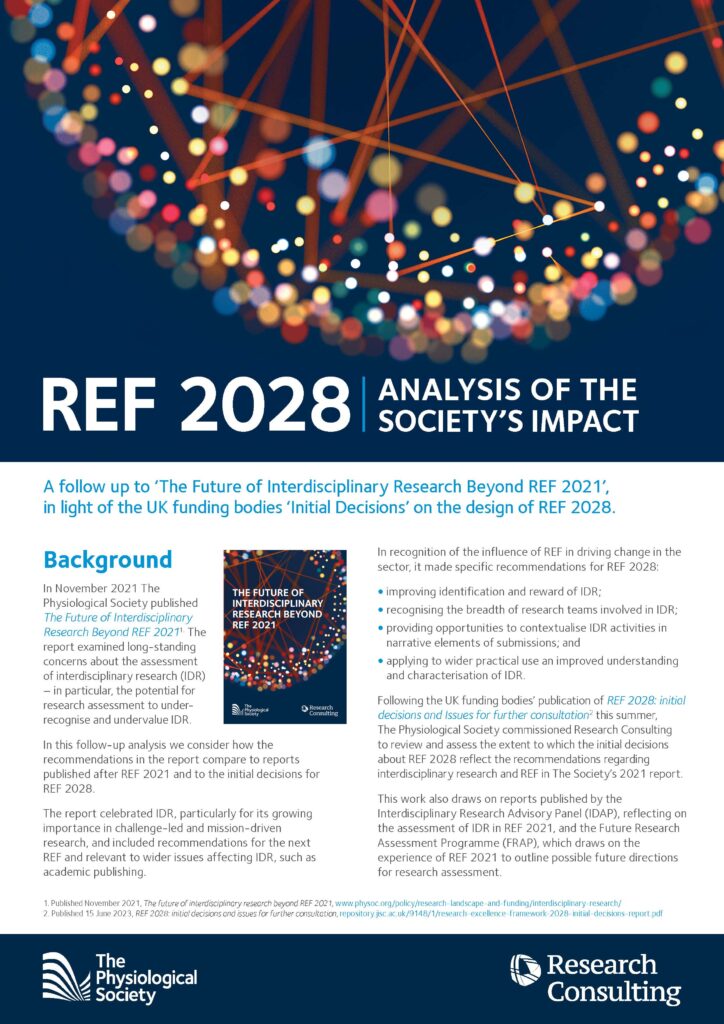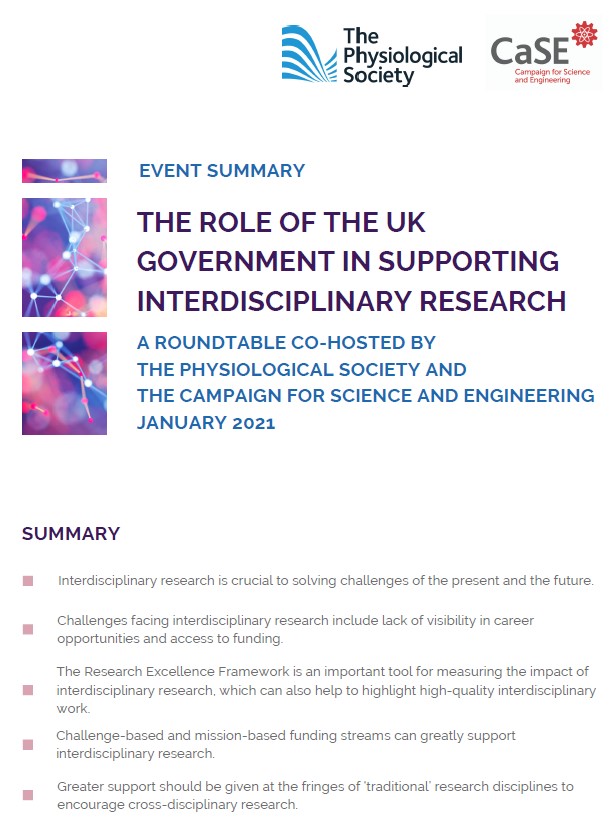REF 2028: Analysis of The Society’s Impact
Our new report REF 2028: Analysis of The Society’s Impact launching on 20 September 2023. The report assesses the extent to which Research England’s initial decisions on the 2028 Research Excellence Framework (REF) reflect The Society’s 2021 recommendations regarding interdisciplinary research and REF. This report is a follow-up to our previous report The Future of Interdisciplinary Research Beyond REF 2021 launched in November 2021 examining the long-standing concerns about the assessment of interdisciplinary research.

REF 2028 and Our Impact
In June 2023, the UK higher education funding bodies for the four nations, published their initial decisions on the high-level design of the next REF. They are seeking to change the emphasis of national assessment from the performance of individuals to the contribution of institutions and disciplines, and would also like the assessment to encompass broader contributions to research and the research process.
Research England’s initial decisions correlate to some extent with 8 out of 10 recommendations made in our 2021 report. For instance, REF 2028 will recognise and reward a wider range of research activities, specifically supporting the assessment of interdisciplinary research, which was one of the key recommendations of our previous report. Further, our recommendation for research which straddles across multiple Units of Assessment (UoA) to be returned to multiple UoAs will also be implemented in the next REF.
The Future of Interdisciplinary Research Beyond REF 2021
Our report The Future of Interdisciplinary Research Beyond REF 2021 made recommendations on how we can increase the quantity of interdisciplinary research and address barriers within the research ecosystem. We made recommendations for REF2028 as well as related factors such as the publishing landscape. The report launched in the Houses of Parliament on 4 November 2021.
Workshop on Interdisciplinary Research Workshop
In January 2021, The Physiological Society and the Campaign for Science and Engineering co-hosted a high level roundtable to discuss the role of the UK Government in supporting interdisciplinary research. An unattributed summary of the discussion has been produced.
Summary of roundtable discussion
- Interdisciplinary research is crucial to solving challenges of the present and the future.
- Challenges facing interdisciplinary research include lack of visibility in career opportunities and access to funding.
- The Research Excellence Framework is an important tool for measuring the impact of interdisciplinary research, which can also help to highlight high-quality interdisciplinary work.
- Challenge-based and mission-based funding streams can greatly support interdisciplinary research.
- Greater support should be given at the fringes of ‘traditional’ research disciplines to encourage cross-disciplinary research.
In concluding, it was felt that a breadth of funding opportunities in a mixture of bottom-up and top-down funds were crucial in supporting interdisciplinary research. This breadth can help meet some of the greatest challenges facing society while helping to build on the strength of the UK’s research base. It will be increasingly important that organisations undertaking research, particularly universities, can support research at the fringes of traditional research disciplines and give strong leadership to develop current and future generations of scientists and researchers to work in a cross-disciplinary way.


